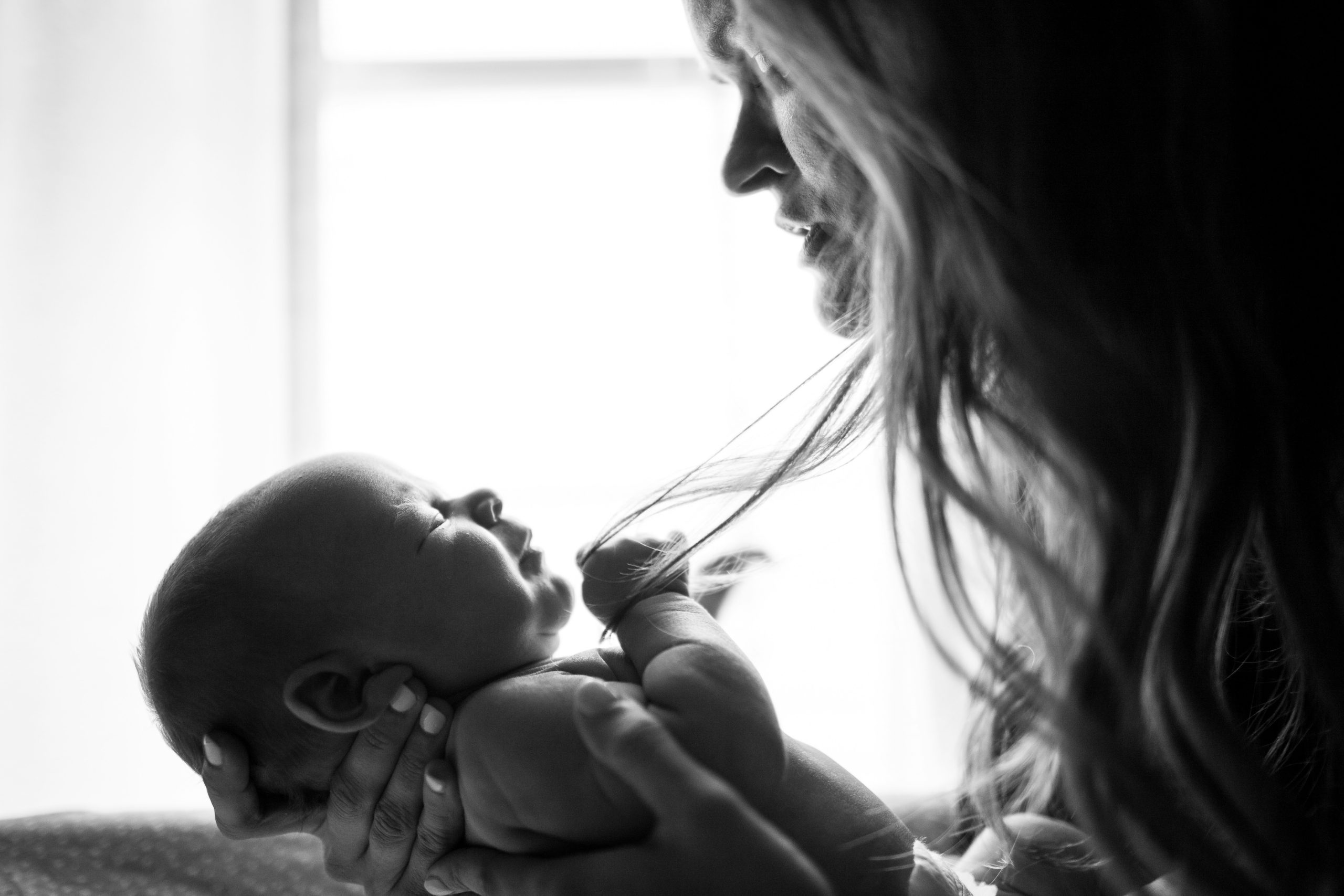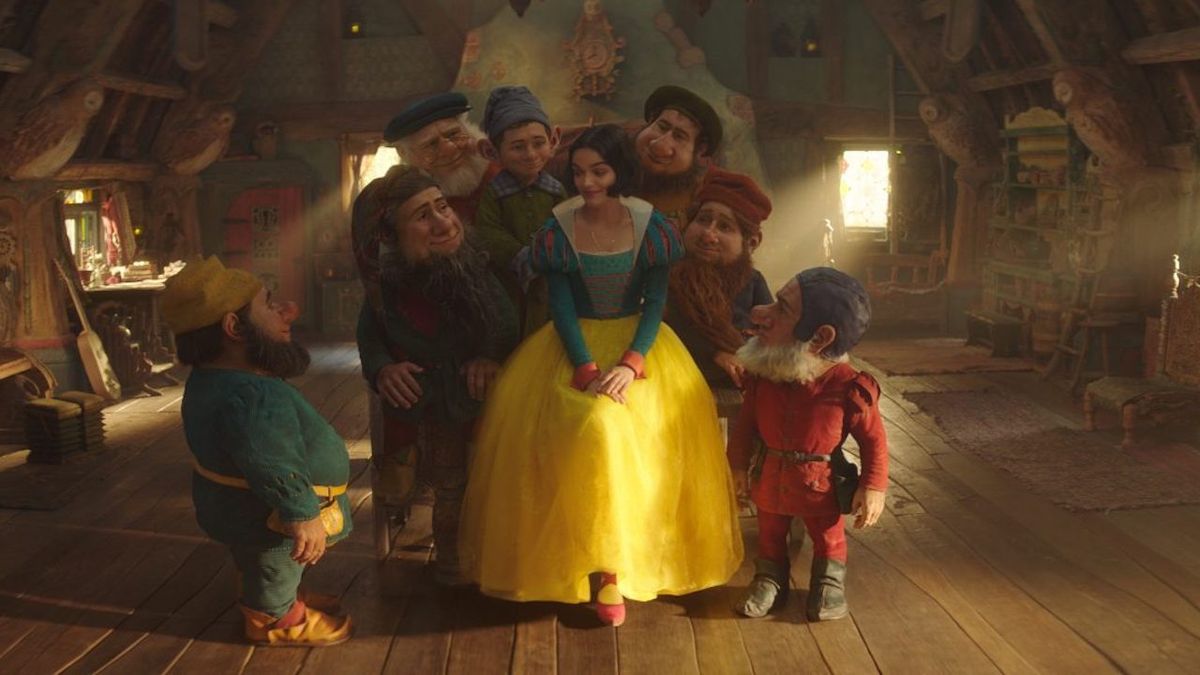If you give birth to a baby during a global pandemic and that baby is born with a birth defect that requires neurosurgery, the splitting open of a tiny, hairless head at ten weeks old; if you are reminded of this daily by the giant, astronaut-like helmet he must wear afterward, barely supported by his floppy neck, by the checks he must do at the doctor’s office where only nonelective cases go (because no one is even leaving the house)—if all this happens, you might become anxious. It might feel like the world has fallen apart or maybe proved itself to be the unaccountably dangerous thing you always suspected it was. In quiet moments alone with your baby, your heart might beat wildly at the thought of rare cancers, foreign wars, or the recall of a crib that is not your crib, fear slicing through your consciousness like a blade.
On the last day of her vacation, Irene Redfield is in Chicago, searching for presents to bring back to her sons in New York. She’s been to six shops, the sun is beating down, and the sidewalk is blistering, so she escapes into the coolness of a hotel. Because it is the 1920s and Irene is a light-skinned Black woman, she must pass as white to enter the Drayton. Irene can do this easily, but generally doesn’t, since she lives in Harlem with her husband, Brian, a doctor, and their two sons. When she does pass, it’s for “the sake of convenience” in a segregated world, to access certain theater tickets and restaurants or, as now, to escape the heat of a brutal summer’s day.
Irene is reviving herself with an iced tea when she encounters Clare, a childhood friend she hasn’t seen for twelve years. Clare is stunningly beautiful and, Irene remembers, the product of a tragic upbringing. She was raised alone by an abusive, alcoholic father until he died in a barfight. The last time Irene saw Clare was just before she was sent to live with her aunts, racist women who insisted Clare pass permanently to hide the “tar-brush” in her lineage.
After the chance meeting at the hotel, Clare forces her way into Irene’s social circle in Harlem. It’s a fraught, intense relationship of opposites. Irene is pragmatic, respectable, and embedded in the Black community. Clare is charming, impulsive, and essentially child-free, having shipped her daughter, Margery, off to school in Switzerland. She is also, Irene learns, courting real danger by coming to Harlem. Clare escaped her aunts by marrying John Bellew, a man who’s not only overtly racist but has no idea his wife is Black.
Passing (1929) by Nella Larsen is a story about many things: race, gender, segregation; friendship, family, desire; the New Woman, the Harlem Renaissance, and the changing culture of interwar America. It is also a story about an anxious mother.
From the moment a woman becomes pregnant, the list of things she should fear begins to grow, unstoppable and unending, like a computer set to spit out the numbers of pi. Alcohol, caffeine, Advil, licorice tea, deli meats, sushi, uncured cheese, unwashed lettuce. Genetic diseases, hypertension, hyperplasia, sleeping on the wrong side. A baby that is too big, too small, badly positioned in the womb. A mother is conditioned to fear things immediate and distant, real and impossible, or so unlikely as to be impossible. Often we are unsure which.
Irene Redfield is a woman “for whom safety, security, were all-important.” What is security to Irene? On the one hand, she believes it’s simply life without Clare, a woman who not only invites real peril by breaking racial barriers, but who Irene begins to suspect is having an affair with her husband, Brian. But Irene is anxious before and outside of Clare. She worries that the boys at her son Junior’s school have given him inappropriate ideas about sex—a notion Brian cruelly dismisses by saying sex—that is, sex with her—is a disappointing joke. She is worried, not unrelatedly, that Brian, long restless, will finally leave her. Irene also worries that the NWL charity dance won’t go smoothly, that her son Teddy will be upset if she cannot find the right drawing pad, that, on a winter’s day, it’s warm and springlike when it should be crisp and cold.
Mothers are biologically primed to be anxious.
Mothers are biologically primed to be anxious. In 2016, researchers discovered that a pregnant woman’s brain undergoes numerous neurological changes that prepare her for motherhood, including loss of gray matter and increased levels of oxytocin, both of which help her empathize with her baby’s needs but also increase anxiety. I wonder if we knew this already, told in our stories to each other, in our confessions of ourselves. If you are quite literally primed to anticipate danger, what do you do when you are faced with a world that is inherently unpredictable, constantly shifting, forever outside your control? You might try, as Irene Redfield does, to nail down the exact nature of the threats.
After my son was born, I pickled vegetables, froze coffee, and kept our pantry stocked with enough chickpeas to last five years. I hid my fear under the pretense of the pandemic, but I continued to hoard even after supply chains were back to normal, even though I knew I wasn’t preparing for lockdown but something else, something still to come. One day, I assembled a go-bag, then stuffed it under the couch and didn’t mention it for weeks, flushed with embarrassment at my precaution. I finally blurted out its existence to my husband when I became worried that something might happen to me and he wouldn’t know we had one or where it was.
Irene tries to prepare, but the threats are too extensive. When, for example, Irene thinks of Brian having an affair with Clare, she cannot decide what the devastation will look like. There could be a variety of possible consequences; it could mean he doesn’t love her, or she no longer loves him, or that she’s never really experienced romantic love. Maybe there will be social shame or embarrassment or, we can assume, the loss of a certain lifestyle and class; Brian’s medical practice pays for their brownstone, with its maids and cook. Of course it will affect the boys, but how? “If so, what, then, would be the consequences to the boys?” she asks herself after a litany of what-ifs, but she has no answer.
What person in a two-parent household hasn’t, at some point, wondered what would happen if they became a single parent? Maybe it would be fine, or maybe it would be an emotional, financial, or logistical nightmare. Maybe the kids would be resilient, or maybe they’d be fucked up, maybe for a year, or maybe forever. The possibilities of a split are too many, too unpredictable. And so Irene freezes. She holds tight to her life, trying to control it and those she loves.
Passing is a portrait of an anxious mother and not necessarily a flattering one. In Irene, Larsen employs that old cliché that motherhood makes women overbearing, unattractive worriers. Clare is effectively childless, having “no allegiance beyond her own immediate desire,” and therefore represents beauty and sex and allure, while Irene, the self-identified mother of the two, is anxious, sexually unsatisfying—the proverbial ball and chain.
“Security. Was it just a word?” Irene wonders. “If not, then was it only by the sacrifice of other things, happiness, love, or some wild ecstasy that she had never known, that it could be obtained? And did too much striving, too much faith in safety and permanence, unfit one for these other things?” When Irene asks if women must trade their sexuality, among other enjoyments of life, for security, she seems to be leading us to answer: yes.
Anxiety may be inherent in motherhood, but it doesn’t make a woman unfuckable.
We need to be careful to recognize this assumption and push back. Anxiety may be inherent in motherhood, but it doesn’t make a woman unfuckable. There doesn’t always have to be a trade-off between security and sex, or safety and happiness, or stability and love. But to point out this trope is not to say that Larsen should have erased Irene’s anxiety or made it less ugly, insidious, or painful. Just the opposite—we need to take on Irene’s anxiety, sit with it and feel its weight, like a heavy coat. We should ask ourselves: What is it like to be inside Irene Redfield’s head?
If the goal is perfect safety and security, what do you do in a world that is unpredictable? You clamp down. You try to limit yourself to what’s known. Movement, which equates to volatility, becomes a threat. See how Clare is always in motion. In her fluttering dress of green chiffon, she passes between cities and neighborhoods and, to Irene’s annoyance, the floors of Irene’s town house, wandering into the living room and down to the cook’s room and up to the playroom so that Irene can’t always see her. Even the NWL dance, one of so many that Irene has been to and that should be a comfortable social event, becomes an unsettling whirl of activity. (Who is Clare dancing with? Everyone, especially Brian.) Later, Irene can’t pin it down in her mind; it is a “blurred” and “mingling” memory.
Mothers often experience movement as fraught. Moving with children requires preparation—snacks, water, diapers, changes of clothes, toys or other distractions, scheduling. Mothers must again and again decide if something is safe or a threat. And what if they cannot tell?
Mothers must again and again decide if something is safe or a threat.
As the literary scholar Anne Anlin Cheng has noted, “The whole point of ‘passing’ is that it profoundly disturbs our certitude in what the visible can tell us; it is an act and a phenomenon that questions how we come to know something.” Motherhood, too, disturbs our sense of what’s real, our ability to rely on what we think we see. Almost every mother I know has had that moment where she stood over her sleeping newborn, watching its tiny chest rise and fall, needing to make sure (could she be sure?) that the baby was breathing. Children grow; questions proliferate. Is there mold hiding in the bath toys? Is this organic baby food full of heavy metals? Is our child’s behavior normal, or something else?
By the end of Passing, Irene is so out of her mind with anxiety that she doesn’t even know whether she pushed Clare out of the window or if Clare fell. Clare disappears through the frame, and “what happened next, Irene Redfield never afterwards allowed herself to remember. Never clearly.” The scene is brilliant in its ambiguity, a fitting culmination to the book’s propulsive, noirish plot. People love to debate the ending, and many read Irene’s so-called confusion as a cover-up for a crime. She couldn’t really not know, could she?
I have ten cans of chickpeas stored in my pantry. If it comes to it, I’ll puree them for the kids, call it hummus. Better remember the can opener, a fork for mashing, olive oil, salt. How long do crackers last? Should I store something lighter than cans if we need to carry them? How many cans fit in a backpack, anyway? I’ll get some granola bars, too.
Perhaps it is obvious to you if I am being prepared or overreacting, if I’m justified or crazy; if Clare Kendry fainted at being discovered or Irene pushed her out of a window in a fit of jealousy. It’s not obvious to me. I suspect it’s not obvious to other mothers.
To see how uncertainty affects mothers, look at the statistics for maternal anxiety during COVID, a time when everything was unknown: how the disease worked, who would get sick, if we would keep our jobs, how we would keep our children safe. Harvard researchers who questioned mothers during the pandemic found that 31 percent of the women reported elevated levels of anxiety/depression and 43 percent felt post-traumatic stress, despite the fact that only 2 percent of them had actually been diagnosed with COVID, and only 7 percent had even been in contact with someone with the disease. Fear of the thing can be almost as damaging as the thing itself.
Should we just accept that the world is unknowable? I wish I could. But even if I do come to terms with danger, it’s not how society tells me to parent. Mothers are expected to aim for what Sarah Menkedick calls the goal of zero risk. In her book Ordinary Insanity: Fear and the Silent Crisis of Motherhood in America, she describes how, after giving birth to her first child, she developed a paranoia around mouse poop that soon multiplied into fear of almost everything—lead, toxins, baby soap. She was paralyzed by anxiety over her child’s safety because in America, mothers are told “the only acceptable risk is no risk at all.” By the time doctors agreed Menkedick’s anxiety had perhaps gone overboard, eventually diagnosing her with OCD and postpartum anxiety, she was two years out from having the baby.
When something—anything—happens to children, the response is to shame their mothers for failing in their duties, then spread fear of the event, like a contagion. And so as mothers, we push harder and harder to control the variables, laboring under the belief that we might achieve complete security. Zero risk is, of course, an impossible goal. Aiming for it is enough to make you crazy, like the new mom who told Menkedick she strapped ankle weights to herself at night terrified by the thought that she might sleepwalk and hurt her baby.
Irene is the ultimate example of how the goal of zero risk fails mothers. She has to deal with not only motherhood and marital instability but also the incalculable dangers of race in America. How does it feel to be the mother of Black children in a country where you cannot know what will count as a threat and to whom? When Clare hosts Irene and another childhood friend, Gertrude, for tea, Irene is technically among two Black women, but they’re all passing. Clare is married to a white man who doesn’t know she’s Black and Gertrude is married to a white man who does. The women discuss their relief that their babies came out pale, as though it were the only, obvious thought. “I nearly died of terror the whole nine months before Margery was born for fear that she might be dark. Thank goodness, she turned out all right. But I’ll never risk it again. Never! The strain is simply too—too hellish,” says Clare. Gertrude agrees: “But, of course, nobody wants a dark child.” Irene, whose husband and sons are dark-skinned, is shocked and humiliated.
Tea at Clare’s house proves the impossibility of Irene being able to anticipate her sons’ safety in a racist world. Where and with whom will her boys be safe? In Harlem, with Clare? How about at a traffic stop? When they go for a run, open their front door, call 911, or ask the police for help? How, in this country, could Irene ever feel at peace?
If you have a baby who is born at the height of a pandemic and that baby requires neurosurgery, people will understand your anxiety, given all that you’ve gone through. But if you tell them that you were anxious with your first child, that fears of cancers and toxins and recalls of cribs that aren’t even your crib were already there, then they may revoke the privilege of their understanding.
Whose anxiety do we validate? Not Irene’s: despite understandable fears for her sons, no one in Irene’s life commiserates with her. Not Sarah Menkedick’s, until she forced the issue with doctors. Not Black mothers, as we fail to address systemic racism or make reforms that will keep their children safe. Not most mothers in America because, on the whole, we assume that worry is part of the job. That doesn’t change the fact that mothers are suffering. That for an estimated one in five postpartum women, and countless others with undiagnosed or ongoing anxiety, fear has become a constant state of mind rather than what it should be, a knee-jerk response to get out of the way of an oncoming truck.
“Stupid!” Irene cries to Brian. “Is it stupid to want my children to be happy?”
No, it isn’t stupid. But in a country where a child’s happiness is expected to align with absolute safety, it is impossible, exhausting. It is enough to drive you mad.
From The Book of Mothers: How Literature Can Help Us Reinvent Modern Motherhood by Carrie Mullins, copyright © 2024 by the author and reprinted by permission of St. Martin’s Press. On sale May 7, 2024.










